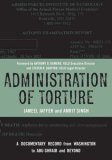White House feels Waxman’s oversight gaze
For months, Rep. Henry A. Waxman, chairman of the House oversight committee, has been threatening, subpoenaing and just plain badgering Secretary of State Condoleezza Rice to come before his panel to answer questions about the run-up to the Iraq war, corruption and State Department contracting.
Today, Rice will finally appear. But Waxman (D-Calif.) has not spent the week on a victory lap. He has found time to produce evidence accusing State Department security contractor Blackwater Worldwide of tax evasion, to fire off a letter to Rice demanding information about alleged mismanagement of a $1 billion contract to train Iraqi police, and to hold a hearing on uranium poisoning on Navajo land.
Waxman has become the Bush administration’s worst nightmare: a Democrat in the majority with subpoena power and the inclination to overturn rocks. But in Waxman the White House also faces an indefatigable capital veteran — with a staff renowned for its depth and experience — who has been waiting for this for 14 years. [complete article]

